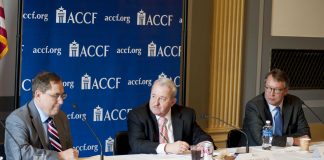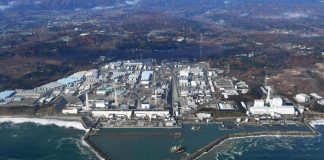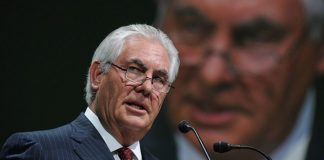Panel Discussion: Public Policy Issues Facing the Federal Energy Regulatory Commission
The Federal Energy Regulatory Commission (FERC), the independent regulatory agency responsible for regulating interstate pipelines, hydropower, transmission lines, and the sale of electricity is facing a number of challenges, including the power sector's rapid shift from coal to natural gas and, increasingly, to renewable energy sources. The American Council for Capital Formation Center for Policy Research recently hosted a conversation with former FERC commissioners Philip Moeller and James Hoecker on these and other public policy issues facing the Commission. The event was moderated by Glen Boshart of SNL Global.
Efforts to Increases Taxes on Oil Producers in Alaska Might Not...
Originally published in Real Clear Energy
As Alaska slips deeper into a recession that began in mid-2014, lawmakers in the 49th state are wrestling with ways to close a $3 billion budget deficit caused, primarily, by an extended period of low oil prices. But increasing the tax burden on the government’s number one source of revenue when the industry is struggling with declining production, increased regulatory costs, and falling profits is likely to collect less, not more for the state’s treasury.
As Alaska slips deeper into a recession that began in mid-2014, lawmakers in the 49th state are wrestling with ways to close a $3 billion budget deficit caused, primarily, by an extended period of low oil prices. But increasing the tax burden on the government’s number one source of revenue when the industry is struggling with declining production, increased regulatory costs, and falling profits is likely to collect less, not more for the state’s treasury.
U.S. Conservatives Unveil Plan to Fight Climate Change
Published in National Geographic
“It’s good that people are trying to figure out a market-based approach, but on the political side… it’s pure fantasy,” says George David Banks, the executive vice president of the American Council for Capital Formation, a pro-business think tank. “Let’s just put aside the toxicity of a tax: what Republicans would need is taking away the EPA’s regulatory authority over greenhouse gases,” he adds. “Democrats won’t even go there.”
“It’s good that people are trying to figure out a market-based approach, but on the political side… it’s pure fantasy,” says George David Banks, the executive vice president of the American Council for Capital Formation, a pro-business think tank. “Let’s just put aside the toxicity of a tax: what Republicans would need is taking away the EPA’s regulatory authority over greenhouse gases,” he adds. “Democrats won’t even go there.”
Backers of HFC pact drop climate angle, cast Kigali as a...
Published in Politico
"From a public messaging perspective, for the sake of the broader coalition, this a strategic trade initiative to advance U.S. competitiveness to help capture global market share, to help shut out the Chinese, and that provides environmental and climate co-benefits as well as co-benefits for economic development," said Dave Banks, executive vice president at American Council for Capital Formation, a nonpartisan group that aims to be a liaison between government and the business community.
"From a public messaging perspective, for the sake of the broader coalition, this a strategic trade initiative to advance U.S. competitiveness to help capture global market share, to help shut out the Chinese, and that provides environmental and climate co-benefits as well as co-benefits for economic development," said Dave Banks, executive vice president at American Council for Capital Formation, a nonpartisan group that aims to be a liaison between government and the business community.
U.S., Republic of Korea Nuclear Cooperation Benefits Both Countries
With more than 50 years of peaceful nuclear energy cooperation and friendship, Washington should demonstrate that close bond by considering requests from Seoul to expand the terms of bilateral cooperation in civilian nuclear energy. With the decline of its own domestic civil nuclear program, the United States needs Seoul’s strategic vision and prowess to help maintain an influential voice in global nonproliferation and nuclear safety matters.
Climate change a bull’s-eye in the era of all-Republican rule
Published in E&E News
Dave Banks said he believes Trump could eventually focus on technological innovations like carbon capture and sequestration. Bush did something similar in his second term by promoting hydrogen cars, biofuels and energy efficiency. And Tillerson might be the leading voice in the administration, Banks said. The oilman accepts basic climate science, making him stand out among Trump and his other nominees.
Dave Banks said he believes Trump could eventually focus on technological innovations like carbon capture and sequestration. Bush did something similar in his second term by promoting hydrogen cars, biofuels and energy efficiency. And Tillerson might be the leading voice in the administration, Banks said. The oilman accepts basic climate science, making him stand out among Trump and his other nominees.
Exxon didn’t oppose sanctions – it opposed unilateral sanctions
Published in The Hill
George David Banks sets the record straight on Secretary of State nominee Rex Tillerson.
George David Banks sets the record straight on Secretary of State nominee Rex Tillerson.
Obama’s Midnight OCS Withdraw Puts U.S. Security at Risk
Originally published in Real Clear Energy
President-elect Trump can and should move swiftly to reverse those decisions of the current administration that make the United States less secure and more dependent on foreign sources for the energy needed to drive economic growth.
President-elect Trump can and should move swiftly to reverse those decisions of the current administration that make the United States less secure and more dependent on foreign sources for the energy needed to drive economic growth.
Trump Administration Offers an Opportunity to Correct Course on Energy Policy
Published in Real Clear Energy
Instead of declaring war on traditional energy resources, the new administration should pursue policies to ensure Americans have access to energy that is abundant, affordable, and with the least environmental impact. Support for advanced research and development can make sure those resources are used in increasingly cleaner and more efficient ways.
Instead of declaring war on traditional energy resources, the new administration should pursue policies to ensure Americans have access to energy that is abundant, affordable, and with the least environmental impact. Support for advanced research and development can make sure those resources are used in increasingly cleaner and more efficient ways.
ACCF Encourages U.S. House to Support Energy Bill and Improvement of...
ACCF President and CEO Mark Bloomfield issued a letter to House Republicans encouraging them to support passage of the energy bill and language to improve DOE’s process for reviewing LNG export projects.
Congress should take the lead on our nation’s energy policies
Published in The Hill
As the year comes to a close, the debate over LNG exports and modernizing out energy policy is at a tipping point. Before the 114th Congress comes to a close, we encourage lawmakers to reconcile differences and send a final energy bill to the president for signing that includes overdue reforms to the DOE review process for LNG export licenses.
As the year comes to a close, the debate over LNG exports and modernizing out energy policy is at a tipping point. Before the 114th Congress comes to a close, we encourage lawmakers to reconcile differences and send a final energy bill to the president for signing that includes overdue reforms to the DOE review process for LNG export licenses.
New Survey: Vast Majority of Environmentalists Want RFS Corn Ethanol Mandates...
With Incoming Trump Administration, Reforms to Ethanol Mandates Could Provide Early, Bipartisan Win
Clinton Misses Point of Trump’s Tweet on China’s Climate “Hoax”
Published in Real Clear Energy
Conspiracy theories abound in the world of climate politics.
Conspiracy theories abound in the world of climate politics.
The Presidential Politics of Energy Policy
Published in Real Clear Energy
Climate change is the new energy policy. President Obama has shifted the nation in recent years away from the abundance of oil and natural gas to cleaner, though more expensive, renewable energy sources.
Climate change is the new energy policy. President Obama has shifted the nation in recent years away from the abundance of oil and natural gas to cleaner, though more expensive, renewable energy sources.
E&E: Trump seeks ‘practical environmentalism’ in EPA chief
A longtime business associate of Donald Trump has two words for what the 2016 Republican presidential nominee wants in a U.S. EPA administrator.
Why a Price on Carbon Is Unlikely in the U.S. Anytime...
Published in Wall Street Journal
George David Banks cites a number of obstacles, starting with GOP opposition in Congress.
George David Banks cites a number of obstacles, starting with GOP opposition in Congress.

















